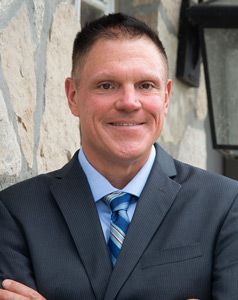The Undesignated Accounting Practitioner: Providing a pathway that serves businesses and the public interest

Many small businesses across Canada rely on accountants without designations for bookkeeping and corporate taxes — but non-designated firms lack oversight
 |
James (Jim) Green, RPA is owner and general manager of Green & Company, Registered Professional Accountants in Cambridge, Ontario, and secretary of the Society of Professional Accountants of Canada. |
ROBERT and Sarah own a small business selling furniture in Ontario. Like many entrepreneurs, they depend on a local accountant for bookkeeping and corporate taxes. This year, they also require compiled financial statements for a loan application — a common scenario for small business owners.
Consider three types of firms they might engage: one operated by a Registered Professional Accountant (RPA), another by a Chartered Professional Accountant (CPA), and a third by an accountant without a designation. Each offers a distinct approach to accounting services, which highlights the challenges and opportunities within the profession.
The Designated Firms: Upholding Standards and Ethical Requirements
Both RPAs and CPAs are certified upon joining their respective professional bodies after extensive education and the relevant Canadian Standards on Related Services (CSRS) 4200-specific training for compilation engagements. They adhere to a code of ethics, undergo practice reviews to ensure compliance, and are subject to oversight in providing services like bookkeeping and tax advisory. Additionally, both designations require professional development and adequate liability insurance when dealing with the public.
For business owners like Robert and Sarah, these firms represent a secure option. While there are differences — the RPA designation focuses on small businesses and non-assurance compilations, whereas the CPA designation covers both small and large enterprises, and includes assurance services — both are committed to protecting the public interest.
The Non-Designated Firm: Variable Competence with No Mechanism for Oversight
The undesignated firm may be run by an accountant with a university degree and a decade of experience. This firm might focus on bookkeeping and tax services and served businesses like Robert and Sarah’s for years. However, when clients seek a bank loan and need a compilation, they might be accustomed to issuing Notice to Readers. Perhaps they continued issuing compilations after the standard changed and made a good faith effort to comply with the new regulations.
But maybe not. It’s also possible they have adopted the cash method for all corporate tax returns as a matter of policy. When a client asks for one, they might provide a compilation without adhering to the procedures outlined in CSRS 4200, simply because they are unfamiliar with them. They may also forgo liability insurance, believing their incorporated status sufficiently protects their personal assets. By skipping steps, this firm may save time and undercut the prices of other firms.
For Robert and Sarah, engaging such a firm carries risks, including receiving a compilation report that does not meet their bank’s requirements, potentially delaying or jeopardizing their loan application.
Beyond Robert and Sarah, their banker deserves a mention as they play the important role of evaluating the statements. Bankers are relatively sophisticated users of financial information, but they may be faced with a scenario where their client has brought them statements they are unsure about or potentially uncomfortable with. They want to know their interests are being protected.
This underscores a challenge in protecting the public interest, highlighting that undesignated firms may lack consistent competence and quality control. There is no mechanism to certify their knowledge, ensure ethical conduct, enforce compliance with regulations, or oversee their work.
The Central Dilemma: Balancing Public Protection and Professional Rights
This raises an important question: How can we protect Robert, Sarah, and their banker, while respecting the value and rights of undesignated accountants?
In Ontario, as with other provinces, undesignated firms are a part of every community, as are countless solo practitioners. Many have operated for decades, issuing Notice to Reader compilation statements for what are otherwise bookkeeping clients, and might have continued doing so following the introduction of the CSRS 4200 compilation standard.
They may be unaware that the new standard makes it impossible to continue doing so without proper adherence, which — due to added requirements — they may not be in a position to do without a designation. However, any restriction of their scope of work introduces significant challenges.
Not being able to offer this routine service may result in undesignated firms having to refer away clients whenever the need for bank loans arises. This creates significant hardship. It results in unpredictable client losses and harms the undesignated accountant’s ability to earn a living. It also reduces consumer choice and increases costs for small businesses.
A Constructive Solution: The RPA Pathway for Undesignated Practitioners
To address these challenges, RPA Canada has introduced the Undesignated Accounting Practitioner Pathway to develop these accounting professionals. For small business owners like Robert and Sarah, this initiative ensures they can continue to rely on trusted accountants while knowing their work complies with professional standards.
This pathway offers undesignated accountants an attainable means to become designated while continuing to operate their firms. It provides necessary upskilling and formalizes best practices to protect the public, ultimately elevating the standard of work across the industry.
Through identifying training gaps and providing the required upskilling while the undesignated accountant continues to operate their firm, we bring them under the same set of rules and operating conditions as the rest of the industry. Clients like Robert and Sarah can trust that their accountants — whether CPAs or RPAs — are competent, comply with tax laws, engage in continuing professional development, adhere to a common set of business ethics, correctly apply standards, and carry liability insurance. This approach protects the public while preserving consumer choice and elevating the professional nature of the firms.
By building up, we can achieve a more competent, ethical, and inclusive accounting industry — one that truly serves the public interest.
James (Jim) Green, RPA is owner and general manager of Green & Company, Registered Professional Accountants in Cambridge, Ontario, and secretary of the Society of Professional Accountants of Canada. Title image: Aberrant Realities from Pixabay. Author photo courtesy James Green.










(0) Comments